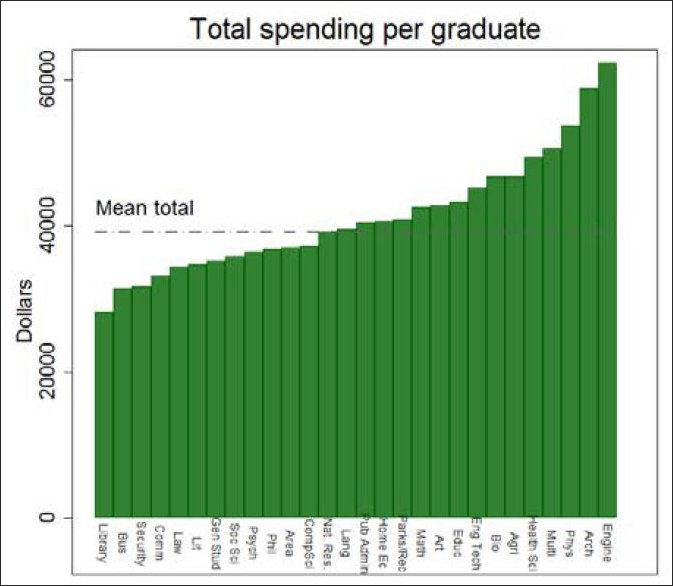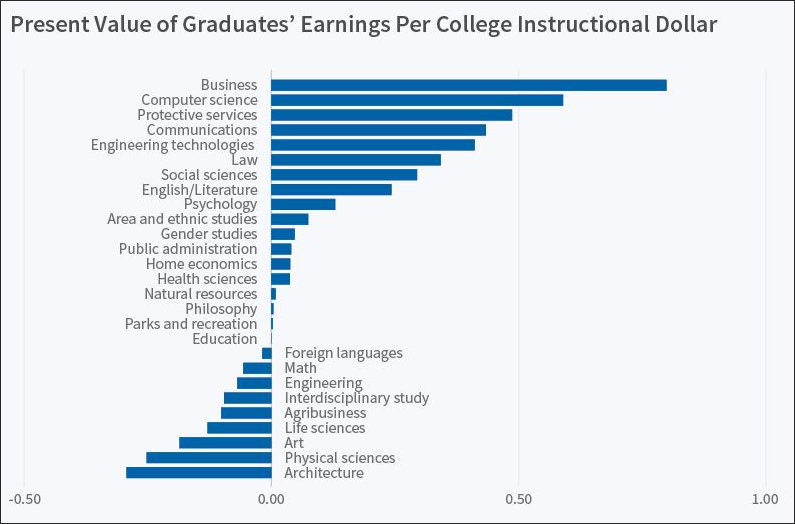
Graphic credit: “Costs of and Net Return to College Major”
It is widely known that certain college majors offer better career prospects than others. Engineering and business majors earn more money on average than, say, art and English majors. Less well known is the fact that certain majors are more expensive to teach. As seen in the chart above, engineering graduates cost twice as much to educate as library graduates.
The data comes from a new study, “The Costs and Net Returns to College Major,” by Joseph G. Altonji and Seth D. Zimmerman, published by the National Bureau of Economic Research. They drew their cost data from the Florida State University System.
The insight that different majors have different costs has important implications for how state systems of higher education allocate their resources. In Virginia, there has been a big push since the “Top Jobs” legislation of 2011 to increase the number of STEM (science, technology, engineering and math) graduates at Virginia colleges and universities. The shift to higher-cost STEM majors, while arguably justified from an economic perspective, contributes to the rising cost of higher education.
Another way to slice and dice the data is to look on the return on investment for different majors based upon the cost of providing the education and the present value of graduates’ earnings. As seen in the chart below, business majors, who cost relatively little to educate but enjoy high lifetime earnings, represent an extraordinary bargain. By contrast, architects, who are expensive to educate but earn relatively little, are a Return on Investment disaster. Much to my surprise, even engineers don’t look like such a bargain.

Career earnings may not be the best way to measure the social value of a particular major. It is possible that architects contribute far more to social well being than their pay stubs would indicate. (It’s hard to imagine that genders-studies majors have anything worthwhile to contribute to the world, but, hey, that’s me.) But the present value of earnings is a pretty good proxy for a graduate’s economic value.
As lawmakers ponder how to allocate scarce higher-ed dollars, they would be well advised to take into account how much bang for the buck colleges are getting for their investment in different disciplines. Perhaps Virginia colleges need to promote enrollment in business schools and less in architecture. I never imagined myself saying this, but maybe we should be encouraging more kids to enroll in psychology and fewer in engineering!


